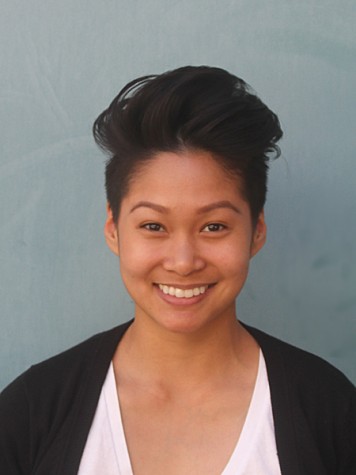Swimming with the dolphins, hiking up to an active volcano and listening to lectures by the poolside of a four-star beach hotel may seem like paradise for students. This summer, Glendale’s study abroad program will turn paradise into reality.
Students will travel across the western Pacific Ocean to the island of Bali as they live and learn together from June 21 to July 15.
Bali is a largely Hindu island within the Muslim country of Indonesia.
Anthropology Professor Victoria Buresch and geography professors Darren Leaver and Laura Englund-Krusee will lead Indonesian excursion for a month.
“We are very close to the cultural center called Ubud, of a developing country,” Leaver said.
Students will learn in a more hands-on approach as professors teach physical anthropology and cultural geography.
“They will be living the textbook example.” Leaver said.
Some hands-on learning include exploring the terrain, asking taxi drivers questions about their culture, and attending and observing a Balinese cremation ceremony.
Point Loma University student Vianka Angulo, 21, is a former Glendale student who studied in Bali in 2010.
“Learning in a classroom is strictly theory. You accept the facts, because that is how they are presented.” Angulo said. “But being exposed and having the ability to interact with the culture itself gives you a deeper and more meaningful understanding of life. Immersing yourself into a culture first-hand as opposed to a power-point presentation is priceless.”
Also, students who choose to add Borneo to their study abroad experience will visit the Orangutans Foundation International (OFI) and meet founder Biruté Mary Galdikas.
Students will learn about orangutans that have been reintroduced in the wild. They will see how people teach orphaned orangutans from recent deforestation how to survive in the forest before they return them back into the wild.
“My students are not only going to be immersed in a rich culture of rich history, but they will also learn about the primates indigenous to the country of Indonesia first hand,” Buresch said. “They are taking what they learned in the classroom and being able to apply it.”
Students will be graded not only on written assignments and essays, quizzes, journals, and multiple-choice exams, but professors will also observe and evaluate how students link concepts with their experiences.
“They will be tested on how terminology is reflected, what they experienced, and why it makes sense in the development of the environment.” Englund-Krusee said.
Although they will be in Bali to learn, students will also have a lot of free time to explore and roam around Ubud and Candidasa.
“We go on adventures that will take them out of their comfort zone, like river rafting.” Leaver said.
Activities include travelingfrom one part of the island to another, zip-lining, an activity where students have a chance to glide from a suspended cable across the mountains, snorkeling, sailing out with dolphins, visiting waterfalls and palaces, sunrise volcano hiking, watching traditional dance performances, downhill bike riding, taking a cooking lesson, and even eating lunch with the tour guides’ family.
Anthropology and psychology major Jessica Farrell, 30, said her favorite memories of the trip in 2010 were getting to know the professors and visiting the monkey forest.
“In Ubud, there is a forest that is full of monkeys. You can buy bananas and feed them. They climb up on you and some sit on your shoulder, or in my case, my head, and eat their banana.” Farrell said.
Angulo returned to Bali again last year where she had a chance to teach English to the local children. She said her favorite memory was at the end of her 2011 trip where she was saying goodbye to the children.
“Every single one of them rushed to give us hugs and tell us they wished we could stay. They had made signs saying goodbye and telling us to come back to Bali soon.” Angulo said. “I gave 100 hugs and my whole heart away that day. As we drove away tons of students chased after our car saying bye.”
With hands-on learning and experiencing a cultural immersion, students have benefited from studying abroad by navigating and living together, and sharing experiences with each other.
Kim Foong Chong, director of study abroad, said that GCC offers that experience above and beyond the academics.
“We make students be better individuals, to be worldly individuals, to know about the world, to have broader ideas, and they can’t say they can do that sitting in a classroom. They have to get out there and see the world.” Chong said. “Students learn a lot about themselves, learn how to be adults, re-evaluate their life, make them grow up in a way, and re-access their surroundings.”
Angulo said her life changed forever.
“I was able to get out of my comfort zone and realize that there is a broad spectrum of possibilities just waiting for you to discover them,” she said.
Study aboard spots are filling up. Interested students must enroll in both Anthropology 101 and Geography 102. There will be mandatory on-campus meetings from June 11 to 19 before departing on June 20.

